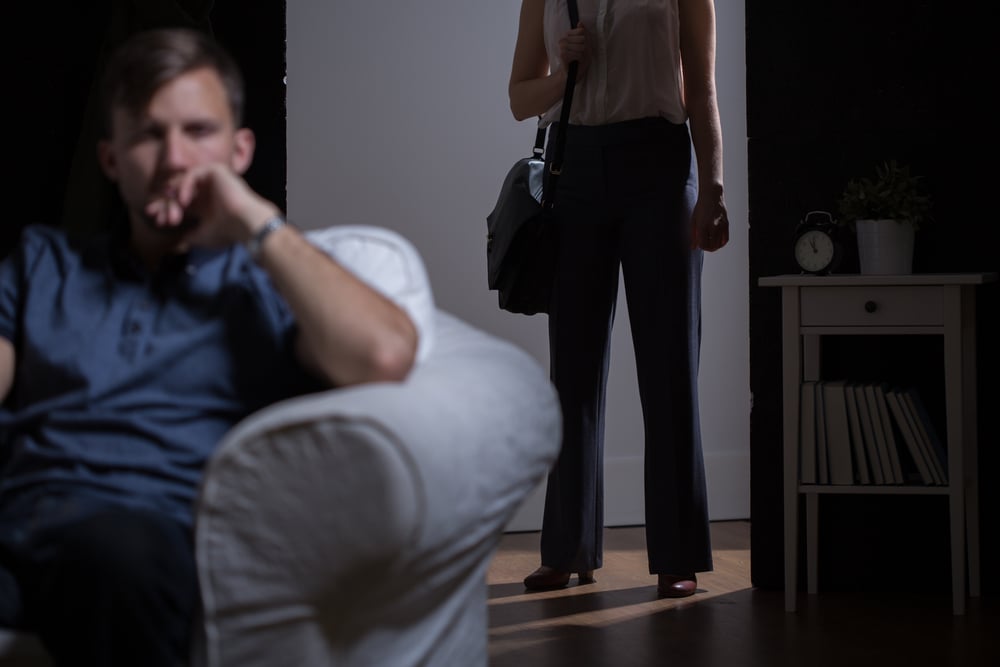A fulfilling romantic relationship is a meeting of equals. Both partners’ opinions and feelings are acknowledged, and both of their needs are taken care of. They thrive both individually and as a couple, allowing each other space for independence and growth -separately and together!
However, the power dynamic within some relationships is not 50/50. It’s common for one person to have more drive and initiative while the other one tends to just go along with everything. While this may seem like a harmonious arrangement, it can cause problems down the road. The partners may hold this difference against each other and grow resentful after a while.
Knowing how to identify and overcome passive behavior may be crucial to the success of your relationship. Keep reading to find out how to deal with this common power disbalance. If you’d like to learn how to spot passivity in a relationship and discover ways to stop behaving passively, you can also do so using relationship intimacy coaching exercises.
What Does Being Passive In A Relationship Mean?

Many relationships have a skewed balance of power. Typically, one partner acts responsibly and fixes problems proactively while the other one is laidback and indecisive. If an issue crops up, the active partner is on it immediately. The passive partner takes the backseat, waiting for the other person’s cues. For example, the passive partner may not even notice a light bulb that’s burned out whereas the active partner will spot it and work on the problem straight away.
This leader-follower dynamic may work for a while. In the beginning of the relationship, this difference may feel refreshing to both people. The passive partner may admire the other one’s problem-solving skills, decisiveness, and resourcefulness. The active partner may like the other person’s laidback and carefree attitude. However, this can also become the main point of contention as time goes by.
Often, this dynamic mirrors what the individual learned as a child and adolescent. Were they parentified too young and have to take charge? Were they controlled by a helicopter parent that did everything for them? Understanding their developmental psychology together as a couple can really help with understanding why their partner reacts the way they do.
What Are The Signs Of Passive Behavior?
A passive partner typically minimizes problems and chooses to deal with them later. This person rarely takes charge or makes vital decisions independently. They prefer relying on the active partner to solve everyday problems, like booking their daughter’s dentist’s appointment or making a grocery list. They may also seek their partner’s approval and readily go along with anything they want and say.
You may have (or be) a passive partner if you keep finding yourself in a conversation about responsibility. If one partner in your relationship keeps complaining about having to be in charge and do everything, the chances are that the other person exhibits passivity.
How Do You Deal with A Passive Partner?
Putting up with this disproportionate division of responsibility is difficult to deal with for both individuals and can even lead to the death of the relationship. If you’re the active partner, you probably feel exhausted, used, and exasperated. This may make you critical and controlling of the other person. In turn, they can feel unfairly victimized and infantilized.
Conversations about passivity often turn into fights about who is right and who does more, and they usually do more harm than good. You may be pushing your partner to have more initiative although they may get defensive and rebuff your complaints. They may also feel like you’re being condescending and unappreciative. This is why approaching these conversations from a place of love and respect is very important.
Talking about the problem is the first step to solving it, although it may be best to tread carefully. It’s advisable to avoid criticizing the person too harshly and calling them lazy or careless. It’s most effective if you present the matter with a clear head, explain yourself directly and openly, and work on a strategy together.
How Do I Stop Being Passive In A Relationship?

An effective strategy for overcoming these differences and aligning with your partner is to communicate effectively and come together to create a solution that works for both parties. This will probably require both partners to change and compromise. Here are some things to try:
Understand what makes you act the way you do
Understanding yourself is essential to functioning well with someone else. An active partner tends to deal with stress by being hypervigilant, anxious, and controlling. While these coping strategies may solve problems, they still take a toll on the person’s well-being. Their passive counterpart may use escapism and avoidance to cope with unpleasant situations. This behavior causes friction in the relationship and gets nothing done. Both people would benefit from acknowledging their ineffective patterns and working through them.
Go against your unhealthy patterns
To have a healthier and more satisfying relationship, one person needs to learn how to let go while the other one needs to adopt a more proactive approach to life. The passive person could try to hear their partner out when they’re in worry mode and acknowledge their concerns. They can make progress by thinking of solutions to the problem at hand instead of dismissing it. Meanwhile, the active individual could work on resisting their controlling urges. Professional relationship coaching can be very helpful in making these different individuals see eye to eye.
Overcome Relationship Passivity & Emotional Intimacy Issues
If you’re unsure how to approach the issue of passivity in your relationship, PIVOT has the answer for you. With our expertise and compassion-based couples workshops at the comfortable Glass House retreat, you can learn how to communicate with your partner more openly, share your fears and concerns, and work through them as a unit.
Our extensive curriculum and individual coaching sessions can also help you find peace and reconnect with every part of your inner self. Our experienced relationship advocates will be there to educate you on healthy behavioral patterns and teach you helpful techniques to help you heal and grow.
Reach out to us today to take part in a rewarding and empowering journey toward self-actualization. We’ll welcome you with open arms.